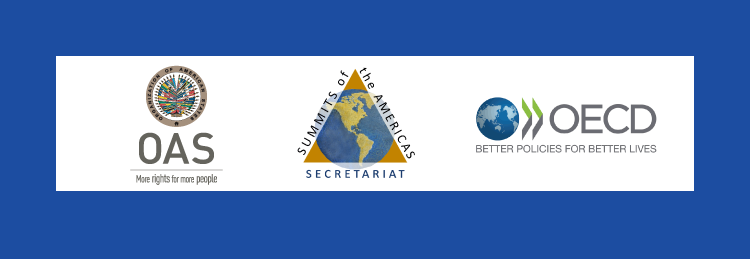
Technical Assistance:
Integrity in the Civil Service
Existing risks of corruption and fraud have been exacerbated by the crisis brought on by the COVID-19 pandemic, which has also created new governance challenges. This has tested regional governments that were already experiencing challenging times marked by a wave of mass protests spurred by deep social discontent, unfulfilled aspirations, persistent vulnerability, and increasing poverty
From the experience of past crises and the current situation, it is clear that emergencies and crisis responses create opportunities for fraud and corruption, as underscored at the recent session on Policy Dialogue: “Corruption and COVID-19,” which was jointly organized by the OAS Summits Secretariat and the Development Bank of Latin America (CAF). Such developments severely weaken the effectiveness of government action while further undermining public trust in institutions. In several countries, meanwhile, the crisis also demonstrated the value of a professional civil service with expertise that citizens can trust, and which can serve as a counterbalance to partisan political decisions that are not evidence-based. Merit-based mechanisms for admission to the civil service do in fact strengthen anti-corruption efforts and the rule of law at the same time.
The foregoing notwithstanding, the high turnover rate of personnel in the civil service in the region, fueled by its heavy dependence on political cycles, hinders the establishment of a professional civil service and a culture of integrity. Using data that are based on the survey of public service experts, the Quality of Governance Expert Survey confirms the huge extent to which the civil service in Latin America is politicized (OECD, 2018 and OECD, 2019). Nevertheless, the context of the current crisis opens up a window of political opportunity for countries of the region to advance pending reforms. Above and beyond all of its attendant benefits, a merit-based civil service reduces the risks of fraud and corruption and helps build citizens' trust in their public service.
To support efforts by the states participating in the Summits Process, especially through the “Mechanism for Follow-up and Implementation of the Commitment of Lima: Democratic Governance against Corruption" – a product of the Eighth Summit of the Americas – the Summits of the Americas Secretariat in its capacity as Technical Secretariat to the Summits Process, in coordination with the Organisation for Economic Co-operation and Development (OECD), are joining forces to create a setting conducive to capacity-building in relation to mandates 9, 10, and 11 under the Lima Commitment. The initiative focuses on issues related to integrity systems for public servants in the region and furthermore shows approaches to issues related to merit-based selection and conflicts of interest in the public service.
- Final report
- Agenda ES
-
List
of participants
- Opening remarks:
ES- Marķa Celina Conte, Interim Director, Summits of the Americas Secretariat
- Presentation by the Organisation for Economic Co-operation and Development (OECD), Frederic Boehm and Felicita Neuhaum, Public Integrity Directorate |
- Closing remarks:
- Marķa Celina Conte, Interim Director, Summits of the Americas Secretariat
- Opening remarks:


